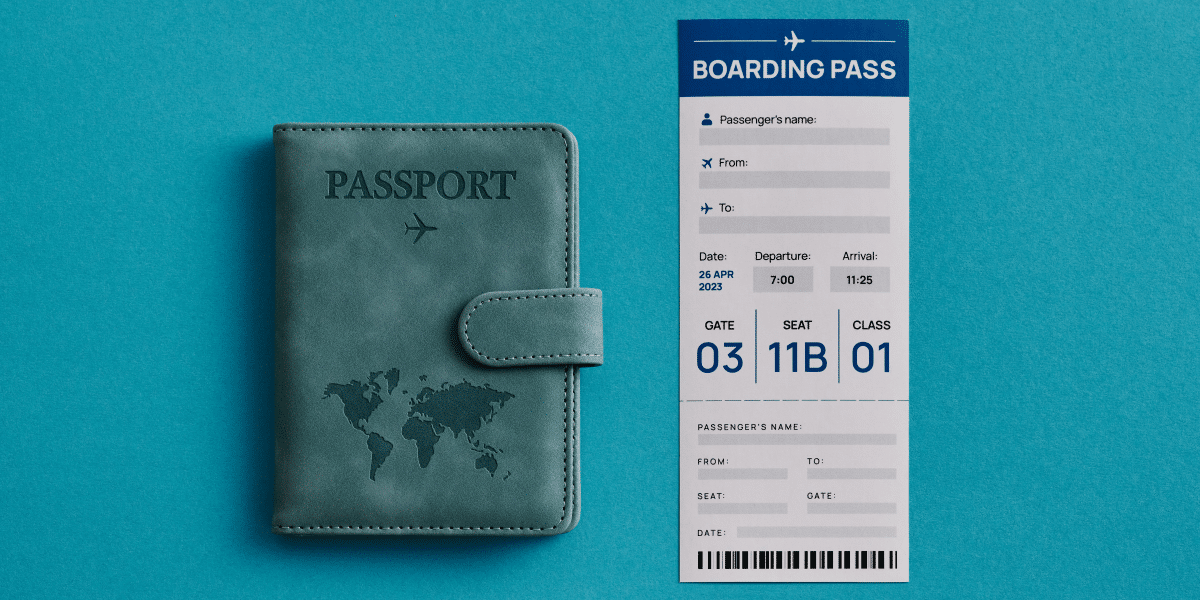In today’s global business landscape, travel is often a necessity. However, with rising travel costs, companies are constantly seeking ways to manage their budgets effectively without compromising the travel experience for their employees.
The challenge lies in balancing cost-saving measures and maintaining a high standard of travel experience. Cutting costs shouldn’t mean compromising employees’ comfort, safety, or convenience. Instead, companies should aim to implement strategies that optimize travel spending in corporate travel management.
Balancing cost control with employee satisfaction can be challenging, but it is achievable with the right strategies. This article explores practical tips for reducing corporate travel costs while ensuring business travelers’ comfortable and productive travel experience.
How to Reduce Travel Costs?
1. Implement a Comprehensive Travel Policy
A well-defined travel policy is the cornerstone of effective corporate travel management. This policy should outline guidelines for booking flights, hotels, and other travel-related expenses. Key elements include:
- Preferred Vendors and Suppliers: Partnering with preferred vendors can often secure better rates and added perks.
- Booking Procedures: Encouraging early bookings can result in significant cost savings.
- Expense Limits: Setting clear limits for meals, accommodations, and other expenses helps control spending.
Ensuring that all employees know and adhere to the travel policy is crucial for its success. Regular training and updates on the policy can help maintain compliance.
2. Leverage Travel Management Platforms
Corporate travel management apps offer tools that simplify the booking process and provide access to exclusive discounts and deals. These platforms often partner with airlines, hotels, and car rental companies, allowing businesses to benefit from negotiated rates. Additionally, these platforms provide real-time data and analytics, helping companies track spending and identify cost-saving opportunities.
3. Encourage Flexible Travel Dates
Flexibility with travel dates can lead to significant savings. Airlines and hotels often have lower rates on certain days of the week or during off-peak seasons. Encouraging employees to be flexible with their travel schedules can reduce costs. Additionally, considering alternative airports and routes can yield cheaper options without significantly impacting travel time.
4. Utilize Technology for Virtual Meetings
While face-to-face meetings are sometimes necessary, not all business interactions require travel. Leveraging technology for virtual meetings can drastically reduce travel expenses. High-quality video conferencing tools such as Zoom and Microsoft Teams enable effective communication without physical presence. Encouraging a culture of virtual meetings for routine interactions can lead to substantial cost savings.
5. Negotiate Corporate Rates and Loyalty Programs
Negotiating corporate rates with airlines, hotels, and car rental companies can lead to significant discounts. Many corporate travel management apps offer corporate loyalty programs with benefits such as free upgrades, priority check-in, and waived fees. Enrolling in these programs and negotiating for better terms based on the travel volume can enhance the travel experience while reducing costs.
6. Optimize Accommodation Choices
Choosing cost-effective accommodations doesn’t necessarily mean compromising on comfort. Encourage travelers to consider alternatives to traditional hotels, such as serviced apartments or Airbnb for Business, which can offer more amenities at lower costs, especially for extended stays. Additionally, booking hotels that include complimentary breakfast, Wi-Fi, and other amenities can reduce out-of-pocket expenses for employees.
7. Use Expense Management Tools
Expense and corporate travel management apps help streamline tracking and reporting travel expenses. These tools can automate expense reporting, categorize expenses, and provide real-time insights into spending patterns. By using these tools, companies can ensure greater accuracy and transparency in expense reporting, identify cost-saving opportunities, and prevent expense fraud.
8. Plan Ahead for Transportation
Transportation costs can add up quickly, but planning ahead can help reduce these expenses in corporate travel management. Consider the following strategies:
- Airport Transfers: Pre-booking airport transfers can often be cheaper than taking a taxi or ride-sharing service on the spot.
- Public Transportation: Encouraging public transportation where feasible can result in significant savings.
- Car Rentals: Booking in advance and using corporate discounts can lower car rental costs. Additionally, choosing fuel-efficient vehicles can save on gas expenses.
9. Monitor and Analyze Travel Data
Regularly monitoring and analyzing travel data is crucial for identifying trends and opportunities for cost savings. Corporate travel management apps provide detailed reports on travel expenses, compliance with travel policies, and vendor performance. Analyzing this data helps negotiate better deals with suppliers, adjust travel policies, and make informed decisions to optimize travel spending.
10. Implement a Travel Rewards Program
Incentivizing cost-saving behaviors among employees can lead to significant reductions in travel expenses. Implementing a travel rewards program that recognizes and rewards employees for making cost-effective travel choices encourages a cost-conscious culture. Rewards can include bonuses, extra time off, or other perks that motivate employees to contribute to cost-saving efforts in corporate travel management.
11. Focus on Traveler’s Well-being
Ensuring employees have a positive travel experience is essential for maintaining productivity and job satisfaction. While cost-saving measures are important, they should not come at the expense of traveler well-being. Providing comfortable accommodations, reasonable travel schedules, and adequate support during travel ensures that employees remain healthy and focused on their work.
12. Review and Adjust Travel Policies Regularly
The travel landscape is constantly evolving, and so should your travel policies. Regularly reviewing and updating travel policies to reflect current market conditions, employee feedback, and business needs ensures they remain effective and relevant. Soliciting input from frequent travelers can provide valuable insights into potential improvements and cost-saving opportunities.
Save Costs With Travel Management Apps
With thoughtful planning and the right strategies, balancing cost control with a positive travel experience is achievable. By implementing a comprehensive corporate travel management policy, leveraging technology, negotiating corporate rates, and focusing on traveler well-being, companies can reduce travel costs without compromising on the quality of the travel experience.
Regular monitoring and analysis of travel data, combined with flexibility and a cost-conscious culture, will help businesses optimize their travel budgets and ensure a smooth and productive travel experience for their employees.
Disclaimer: Please note that the content provided here is for informational purposes only and does not constitute legal or immigration advice. Immigration laws and regulations are complex and subject to frequent changes. Therefore, readers are advised to consult with a qualified immigration attorney or the appropriate governmental agency for advice on their specific circumstances and legal requirements. The information on this site should not be relied upon as a substitute for personal legal advice from a licensed professional.
Published By: Aize Perez

















